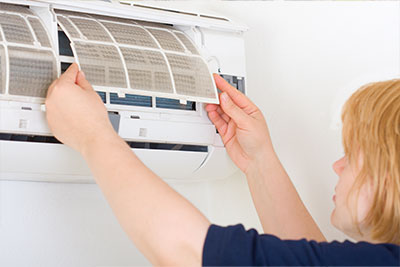 In our modern homes, various appliances play crucial roles in enhancing comfort, convenience, and cleanliness. Many of these appliances rely on filters to maintain optimal performance and efficiency. Filters help remove impurities, contaminants, and debris from air, water, and other substances, ensuring that our appliances function effectively and our living spaces remain healthy and comfortable.
In our modern homes, various appliances play crucial roles in enhancing comfort, convenience, and cleanliness. Many of these appliances rely on filters to maintain optimal performance and efficiency. Filters help remove impurities, contaminants, and debris from air, water, and other substances, ensuring that our appliances function effectively and our living spaces remain healthy and comfortable.
In this blog post, we'll explore the significance of filters in common home appliances and provide guidance on when to clean or replace them to ensure continued efficiency and longevity.
Air Purifiers and HVAC Systems:
Air purifiers and HVAC (heating, ventilation, and air conditioning) systems work tirelessly to maintain indoor air quality by filtering out dust, pollen, pet dander, mold spores, and other airborne particles. These systems typically use filters such as HEPA (High-Efficiency Particulate Air) filters, activated carbon filters, or pre-filters.
When to Clean or Replace: Check the manufacturer's recommendations for specific intervals, but as a general rule of thumb, it's advisable to inspect and clean or replace filters every 3 to 6 months, or more frequently if you have pets, allergies, or live in a dusty environment.
Refrigerators:
Refrigerators with water and ice dispensers often feature water filters to remove impurities, chlorine, sediment, and odors from the water supply. These filters ensure that the water and ice you consume are clean and safe.
When to Clean or Replace: Most refrigerator water filters need to be replaced every 6 months to maintain optimal filtration performance. Some models may have indicator lights that signal when it's time for a replacement.
In addition to water filtration, many modern refrigerators also come equipped with air filters. These filters help remove odors and contaminants from the refrigerator compartment, keeping your food fresher for longer and maintaining a clean and odor-free environment inside the fridge.
When to Clean or Replace: The frequency of cleaning or replacing air filters in refrigerators can vary depending on usage and environmental factors. As a general guideline, it's recommended to inspect and clean or replace air filters every 3 to 6 months. If you notice strong odors inside the refrigerator or if the filter appears visibly dirty, it's a good idea to clean or replace it sooner.
Vacuum Cleaners:
Vacuum cleaners rely on filters to trap dust, allergens, and debris from floors, carpets, and upholstery. Common types of vacuum filters include HEPA filters, foam filters, and cloth filters.
When to Clean or Replace: Check the vacuum's user manual for guidance, but in general, it's recommended to clean or replace filters every 3 to 6 months, or more frequently for heavy usage. Regular maintenance helps prevent clogs and ensures efficient suction.
Range Hoods and Exhaust Fans:
Range hoods and exhaust fans in kitchens are equipped with filters to capture grease, smoke, and cooking odors, preventing them from spreading throughout the home and accumulating in ducts and vents.
When to Clean or Replace: Clean or replace range hood filters every 3 to 6 months, or more frequently if you cook frequently with high heat or use your range heavily. Grease buildup can impair ventilation and pose fire hazards.
Washing Machines and Dishwashers:
Washing machines and dishwashers may contain filters to trap lint, food particles, and debris during the washing cycle, preventing them from redepositing on clothes or dishes.
When to Clean or Replace: Inspect and clean washing machine lint filters regularly, ideally after every few laundry cycles, to prevent clogs and maintain optimal performance. Dishwasher filters should be cleaned or replaced every few months to prevent food buildup and ensure thorough cleaning.
Tips for Maintenance:
- Follow manufacturer recommendations: Consult the appliance's user manual for specific maintenance guidelines and filter replacement schedules.
- Keep track of filter replacements: Use calendars, reminders, or indicator lights to stay on top of filter maintenance.
- Use high-quality filters: Opt for genuine replacement filters recommended by the appliance manufacturer to ensure compatibility and performance.
- Monitor appliance performance: Pay attention to signs of reduced efficiency, such as decreased airflow, unusual odors, or poor water quality, which may indicate the need for filter cleaning or replacement.
By regularly cleaning or replacing filters in your home appliances, you can optimize their performance, extend their lifespan, and maintain a healthier indoor environment for you and your family. Make filter maintenance a priority in your household routine to enjoy the full benefits of your appliances for years to come.
If you have any questions, call or contact Litaker Insurance today.
